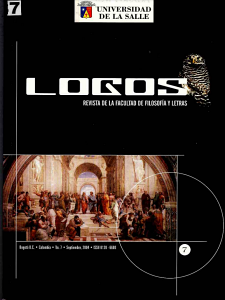Abstract
This article points out that the great theses formulated by the analytic philosophy of the XX century, were anticipated in the XVII century by Thomas Hobbes. In The Leviathan, the author states the existing relationship between science and language. He had in mind the need of discerning between the sensible propositions and the absurd ones. Language is what provides the conditions for the construction of scientifi c thought and discovery of the truth. It also can be a source of error, absurdity and nonsense. To avoid this danger, the philosopher must employ a method of analytic character that allows him to distill clearly the meaning of the expressions he uses, always appealing to an attitude of rigor, precision and exactitude.Downloads
Download data is not yet available.



